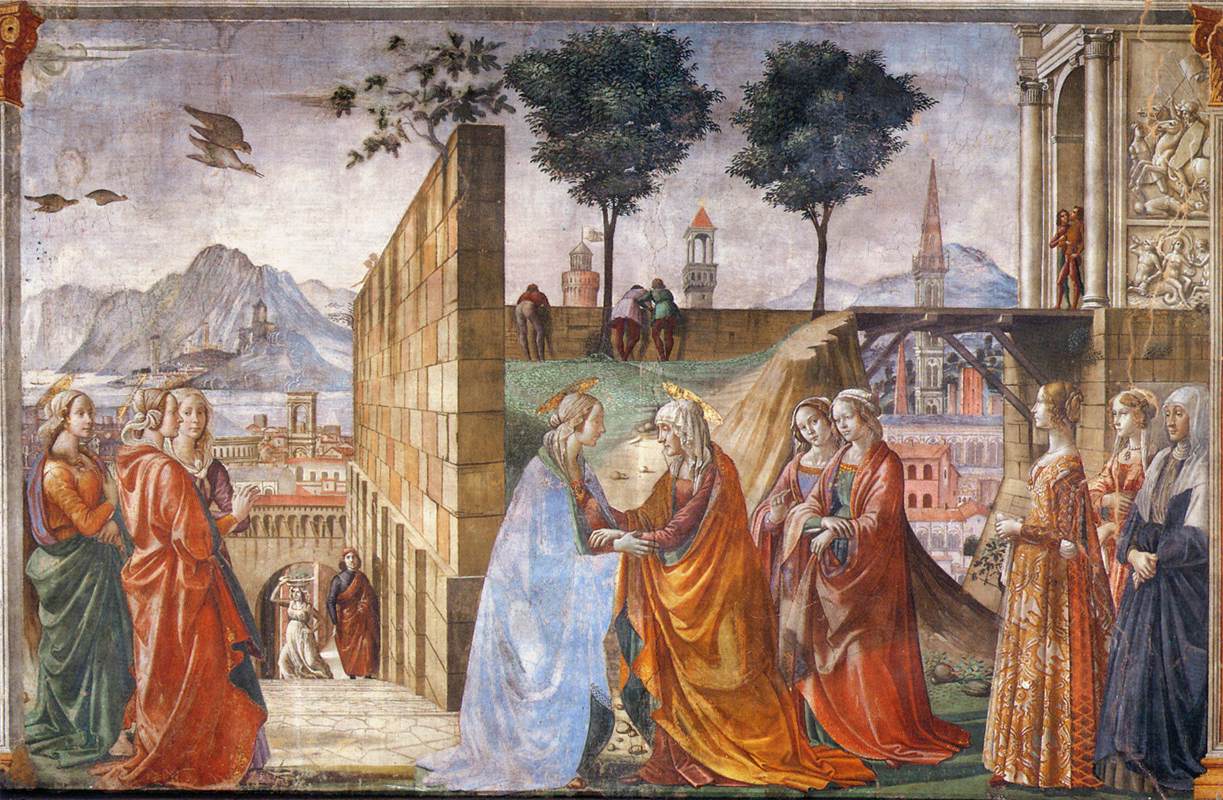
On May 31, we celebrate the feast of the Visitation of the Blessed Virgin Mary, which commemorates her visit to her cousin, Elizabeth. As a Protestant pastor, I didn’t think much about this event. It’s not like a Baptist ever thinks of reciting the Magnificat. I didn’t realize at the time that in terms of biblical typology, this passage is one of the richest in the entire New Testament.
As you may know, a “type” in Scripture is a person or thing or event in the Old Testament that foreshadows a person, thing, or event in the New Testament. Typology is evidence of God’s providential rule over history.
For example, how would it have ever entered the minds of Old Covenant Israel that their entire history was a type foreshadowing the New Covenant Israel, the Church? Would the children of Israel have ever imagined that their bondage in Egypt was a type of the bondage of every human being to sin? Or that their deliverance by the sacrifice of the Passover lamb was a type of the Lamb of God who set the world free from sin and death? Or that their crossing of the Red Sea was a type of Baptism, the manna from heaven a type of the Eucharist? Or that the pillar of cloud by day and fire by night that led them through the desert was a type of the Holy Spirit who leads the Church through the wilderness of this world toward the heavenly Jerusalem? They could not have known any of this. But God knew where he was taking humanity.
All of this I understood when I was a Baptist pastor. What would have never crossed my mind is that the role of the Queen Mother within the kingdom of David was also a type of the role the Blessed Virgin Mary now occupies in heaven, and that is presented to us in the story of the Visitation.
In ancient Middle-Eastern kingdoms the most important Queen was not the wife of the king, but was instead the king’s mother. She was the Queen Mother, a position of tremendous authority and importance.
We learn a great deal about the unique status of the Queen Mother in Israel from the story of Bathsheba, the mother of King Solomon. In 1 Kings 1:15-18, Bathsheba comes to her husband, King David, to request something of him. She bows down before him and refers to him as “my Lord.” However, when David dies and her son Solomon is seated on the throne, the roles are entirely reversed. Now when Bathsheba goes to see the king, it is the king who rises to meet his mother and bows before her in humble obeisance! Solomon orders a throne to be brought and has the Queen Mother sit at his right hand (1 Kings 2:19-20).
How does this relate to Mary and her visit to Elizabeth? In the Annunciation narrative Mary is presented as the mother of the son of David, heir to the Davidic Kingdom. As the angel Gabriel explains, to her son Jesus “the Lord God will give . . . the throne of his father David, and he will reign over the house of Jacob forever; and of his kingdom there will be no end” (Luke 1:30-33). If Jesus is the King, Mary is the Queen Mother. We see this as Mary travels to visit her cousin Elizabeth.
We learn from Luke 1:5 that Elizabeth was a direct descendant of Aaron, the brother of Moses himself, and the original High Priest in Israel. She is also the wife of Zachariah, a priest. Moreover, she is advanced in years and known for her great holiness. Luke says that she and Zechariah“were both righteous before the Lord, walking in all the commandments and ordinances of the Lord blamelessly.”
Mary is nobody in comparison to Elizabeth, just a teenage girl from the backwaters of Galilee. Yet when Mary appears at her door, Elizabeth responds as though the privilege is more than she can comprehend. “Why is this granted me, that the Mother of my Lord should come to me?” (Luke 1:43). Elizabeth reveals her understanding that Mary has been chosen to be the Queen Mother, seated at the Lord’s right hand in a kingdom that shall never end. Mary’s response reveals that she understands this as well:
My soul magnifies the Lord, and my spirit rejoices in God my Savior, for He has regarded the low estate of his handmaiden. For behold, henceforth all generations will call me blessed; for he who is mighty has done great things for me, and holy is his name . . . He has put down the mighty from their thrones and exalted those of low degree . (Luke 1:47-49,52)






